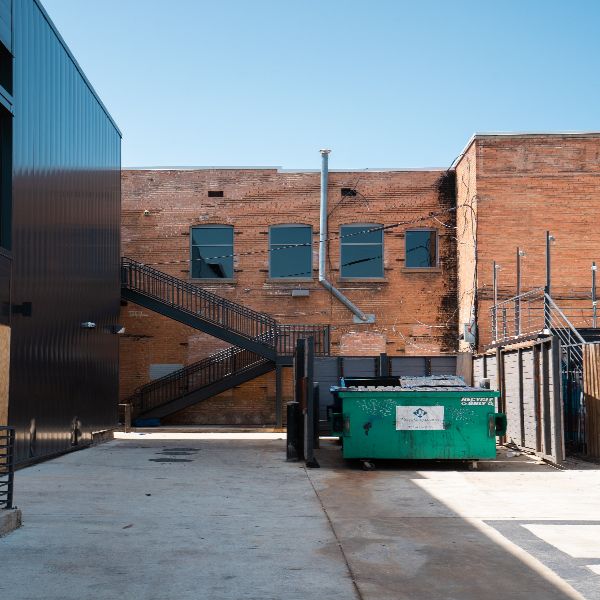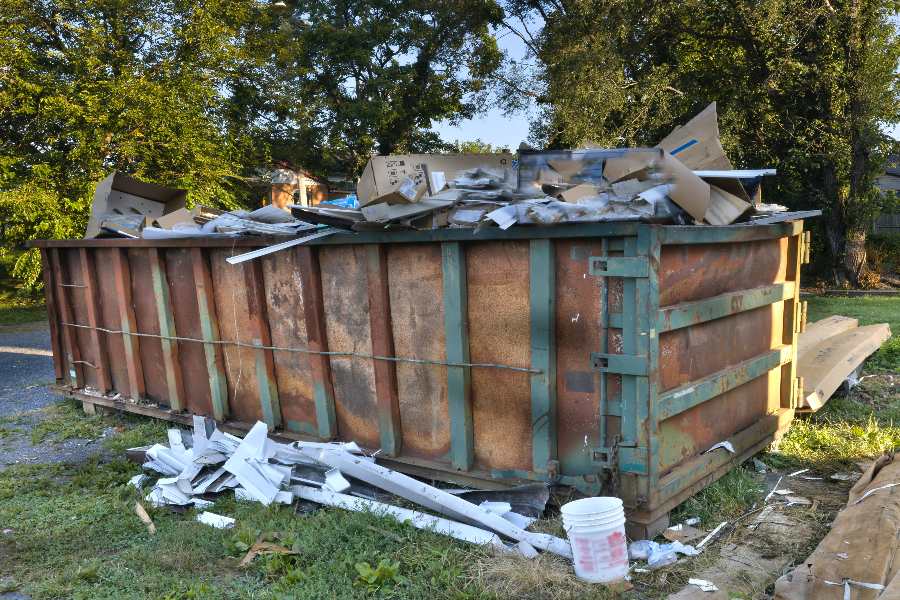Dumpster diving, often considered a form of urban foraging, has gained popularity as a means of reducing waste and finding valuable items. It is also a way of making money for some people.
However, the legality of dumpster diving varies from state to state, and even in the states, the rules vary from jurisdiction to jurisdiction.
Simply put, there are many loopholes surrounding dumpster diving, and this leaves many people wondering, “Is dumpster diving legal in Texas?”
In this article, we look into the laws surrounding dumpster diving in Texas, its environmental impact, potential legal consequences, and tips for dumpster divers to stay within the boundaries of the law.
Keep reading.
You may also want to read: Is dumpster diving legal in North Carolina?
Dumpster Diving Laws in Texas
Dumpster diving in Texas exists in a legal gray area. There are no specific state laws that expressly prohibit or permit dumpster diving. Instead, the legality largely depends on local ordinances and regulations.

Some cities and municipalities may have ordinances prohibiting rummaging through dumpsters, while others may allow it within certain limits.
Is Dumpster Diving legal in Texas?
The simple answer would be, “It depends” on where and how you do it.
While dumpster diving is generally allowed on public property across most Texas cities, it is crucial to abide by the state’s trespassing laws and adhere to all relevant ordinances and statutes.
It’s important to note that dumpster diving in a trash receptacle on private property is considered illegal. Moreover, trespassing onto private property intending to dumpster dive is also prohibited.
Sometimes, items placed in a receptacle and left at the curb may be considered fair game. However, in other instances, the items are still regarded as belonging to the rightful owner until waste management collects them. Even when dumpsters are in public areas, owners can assert their rights by posting signs, locking them, or using barriers. Trespassing in such situations can also lead to legal consequences.
Legal Implications of Dumpster Diving
Trespassing charges can be applied to individuals engaging in unauthorized dumpster diving activities because every business and private residence is legally recognized as private property. Simply put, if you need to access areas enclosed by gates, fences, or private properties, it is advisable to steer clear of dumpster diving near these locations.

Engaging in dumpster diving near such areas could result in trespassing charges and theft-related charges. It is vital to exercise caution and diligence before commencing any dumpster diving endeavor.
More Potential Legal Consequences
- Trespassing: If a property owner or manager considers your dumpster diving activity as trespassing, you may face legal consequences.
- Private Property Rights: Dumpster diving on private property without permission can lead to legal issues related to property rights and privacy.
- Public Property: Dumpster diving on public property, like city dumpsters, is generally less likely to result in legal consequences, but it’s essential to be respectful and clean up after yourself.
Tips for Responsible Dumpster Diving in Texas

Are you looking to find some treasures or make money dumpster diving in Texas? These tips can come in handy:
- Research Local Laws: Before diving, familiarize yourself with local ordinances and regulations regarding dumpster diving in your specific area.
- Seek Permission: Obtain permission from property owners or managers to avoid potential legal issues. Always ask business owners because they can ban you from their premises or press charges.
- Respect Privacy: Avoid going through dumpsters on private property unless explicitly permitted.
- Leave No Trace: Always clean up after yourself, leaving the area in a better condition than you found it.
- Safety First: Wear gloves and take necessary precautions to avoid injuries or exposure to hazardous materials.
Is Dumpster Diving Illegal in Texas FAQs
What is the best day to dumpster dive?
The best day to dumpster dive often depends on personal preferences and locations. Still, many divers find that weekdays, especially evenings, yield more fruitful results due to lower traffic.
Tuesdays and Fridays are prime days for dumpster diving, especially around grocery, retail, and electronic stores. These particular days coincide with restocking schedules in the retail and grocery sectors. On Tuesdays, many stores receive new apparel items, while Fridays mark the arrival of fresh food items. This synchronization often translates to better dumpster diving opportunities on these specific weekdays.
Also read: 50+ hobbies that can make you money
Is Dumpster Diving Illegal In Houston, Texas?
Dumpster diving in Houston, Texas, is perfectly legal if you do not trespass on private property.
An article published in Houston Public Media revealed that the city has taken a progressive step by passing a “dumpster diving ordinance.” This new rule decriminalizes the act of retrieving items from public garbage cans, offering relief to homeless individuals who can now rummage through trash without the fear of citations or arrest.
What is the penal code for dumpster diving in Texas?
Engaging in unauthorized use of another person’s dumpster, including business dumpsters, violates the Texas Penal Code. This act can result in legal consequences, potentially leading to Class B Misdemeanor Theft charges or Illegal Dumping, as outlined in Penal Code 31.04 and HSC 365.012. It is essential to be aware of and respect these laws to avoid facing penalties for such activities.
Conclusion : Is Dumpster Diving Illegal In Texas
While dumpster diving in Texas falls within a legal gray area, understanding and respecting local ordinances is crucial to avoid potential legal consequences. The environmental benefits of reducing waste and promoting recycling make dumpster diving appealing to many. As the perspectives on this activity continue to evolve, dumpster divers need to stay informed about the laws in their specific area and prioritize responsible and respectful practices to minimize any potential legal and ethical problems that may arise.








